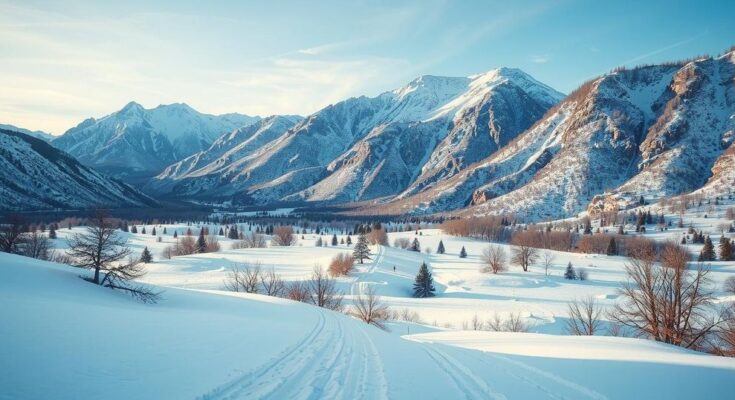A report from Climate Central reveals that winter is becoming shorter in the Mountain West, with some areas losing between two to ten days this year due to climate change. Warmer temperatures result in fewer below-freezing days, affecting states differently. The decline in winter days threatens ski resorts, ecosystems, and water supplies critical for agriculture.
A recent report by Climate Central indicates that residents of the Mountain West will experience a reduction in winter duration, potentially losing between two to ten days of winter this year due to climate change. The report highlights that certain states such as Arizona, New Mexico, and Nevada are particularly affected, averaging a loss of approximately ten below-freezing days annually. In contrast, states like Wyoming, which maintains higher altitudes, have recorded a mere loss of two days, showing a discrepancy in winter day loss across the region.
The changes in winter days are fundamentally linked to rising temperatures, as evident in the statement by Kristina Dahl, Vice President of Science at Climate Central. She emphasizes that elevated regions maintain lower temperatures, thus experiencing a comparatively lesser impact from warming trends. On average, states like Idaho and Colorado have lost four winter days, raising concerns about the resilience of ski resorts and the effects on local ecosystems.
Furthermore, the resulting warmer winters pose significant risks beyond recreational activities. Dahl cautions that earlier blooming of flowers may occur before essential pollinators arrive, jeopardizing agricultural productivity. Meanwhile, diminished snow cover threatens the availability of water resources for communities dependent on winter snowpack. This increasingly critical situation highlights the urgent need for addressing climate impacts in the Mountain West.
The Mountain West has been experiencing notable changes in climate patterns, specifically manifested in reduced winter days largely attributable to climate change. In the context of the escalating global temperatures, this phenomenon has widespread implications, affecting not only leisure activities such as skiing but also the ecological balance and agricultural cycles within the region. Understanding these shifts is vital for mitigating potential consequences on both local economies and environmental sustainability.
In conclusion, the Mountain West is facing a significant reduction in winter days, with implications for both recreational sectors and the environment. The variability observed across states underscores the uneven impacts of climate change, where lower altitude regions suffer more considerable losses in winter days. Urgent action is needed to address these climatic changes to protect the ecosystems and economies that depend heavily on winter conditions.
Original Source: www.kanw.com




